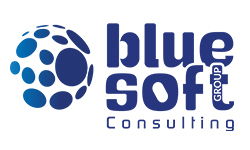L’axe de recherche PMO développé à travers le programme Aurore
17/10/2019
2min
Tables des matières
Présentation de l’axe de recherche PMO
Face au défi de la mise en application cohérente des processus de gestion de projets, programmes et portefeuilles (3P) dans les organisations qui sont confrontées à une concurrence mondialisée, le Project Management Office (PMO) est une réponse possible. En effet, en favorisant la montée en maturité des grandes organisations, ces unités appuient concrètement la réalisation des 3P (Dai and Wells, 2004; Linde and Steyn, 2016).
Si les premiers PMO datent de 1805 dans l’administration anglaise (Darling and Whitty, 2016), leur généralisation est très récente. Plusieurs travaux, notamment ceux réalisés par Aubry (Aubry et al., 2011, 2007; Hobbs and Aubry, 2007) dans sa thèse de doctorat, tentent de dresser un portrait du PMO mais cette entité reste encore protéiforme et mal définie.
L’axe de recherche PMO du programme Aurore a pour vocation de répondre aux questionnements :
- Comment initier la création et la mise en place d’un PMO ?
- Comment structurer les offres de services de ces unités d’appui ?
- Comment mesurer la performance de ces entités ?
L’objectif principal de cet axe de recherche consiste à identifier / comprendre / justifier le rôle de cette entité dans la conduite des transformations d’entreprises. Objet protéiforme, notre recherche accompagne aussi la transformation du PMO dans l’organisation (Aubry, 2015; Bredillet et al., 2018, 2017).
Présentation des rencontres pour l’axe de recherche PMO
Bibliographie indicative pour l’axe de recherche PMO
Aubry, M., 2015. Project Management Office Transformations: Direct and Moderating Effects that Enhance Performance and Maturity. Proj. Manag. J. 46, 19–45. https://doi.org/10.1002/pmj.21522
Aubry, M., Hobbs, B., Thuillier, D., 2007. A new framework for understanding organisational project management through the PMO. Int. J. Proj. Manag. 25, 328–336. https://doi.org/10.1016/j.ijproman.2007.01.004
Aubry, M., Richer, M.-C., Lavoie-Tremblay, M., Cyr, G., 2011. Pluralism in PMO performance: The case of a PMO dedicated to a major organizational transformation. Proj. Manag. J. 42, 60–77. https://doi.org/10.1002/pmj.20269
Bredillet, C., Tywoniak, S., Tootoonchy, M., 2018. Why and how do project management offices change? A structural analysis approach. Int. J. Proj. Manag. 36, 744–761. https://doi.org/10.1016/j.ijproman.2018.04.001
Bredillet, C., Tywoniak, S., Tootoonchy, M., 2017. Exploring the dynamics of project management office and portfolio management co-evolution: A routine lens. Int. J. Proj. Manag. 36, 27–42. https://doi.org/10.1016/j.ijproman.2017.04.017
Dai, C.X., Wells, W.G., 2004. An exploration of project management office features and their relationship to project performance. Int. J. Proj. Manag. 22, 523–532. https://doi.org/10.1016/j.ijproman.2004.04.001
Darling, E.J., Whitty, S.J., 2016. The Project Management Office: it’s just not what it used to be. Int. J. Manag. Proj. Bus. 9, 282–308. https://doi.org/10.1108/IJMPB-08-2015-0083
Hobbs, B., Aubry, M., 2007. A Multi-Phase Research Program Investigating Project Management Offices (PMOs): The results of Phase 1. Proj. Manag. J. 38, 74–86.
Linde, J. van der, Steyn, H., 2016. The Effect of a Project Management Office on Project and Organisational Performance: a Case Study. South African J. Ind. Eng. 27, 151–161. http://dx.doi.org/10.7166/27-1-1114

